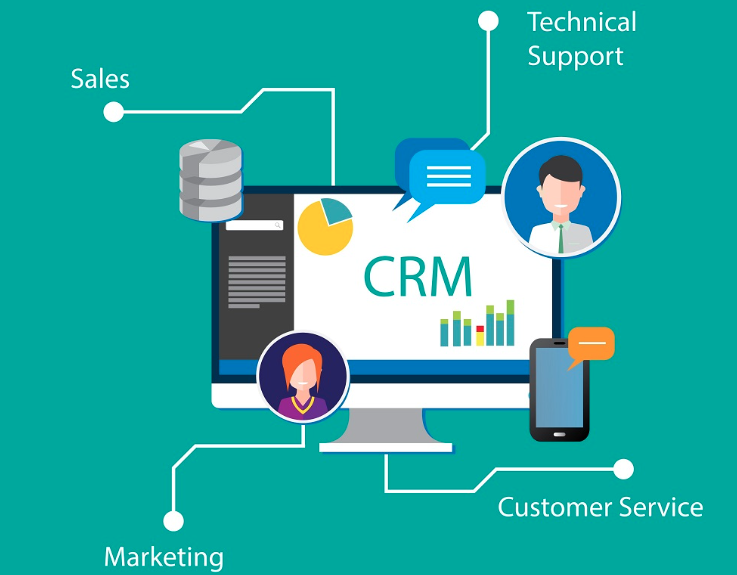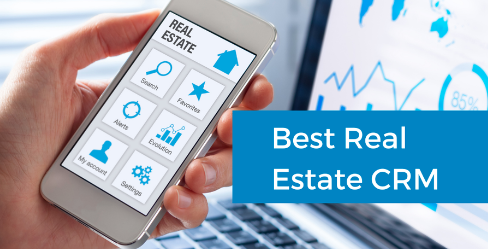Customer Relationship Management (CRM) software is essential for small businesses in 2025 to enhance customer relationships, streamline processes, and boost overall productivity. A CRM software for small business helps manage interactions with current and potential customers by automating processes, tracking leads, and analyzing data to improve business strategies. As small businesses face growing competition, leveraging the right CRM solution can make a significant difference in scaling operations, increasing sales, and building long-term customer loyalty.
In this article, we will explore the best CRM software for small business in 2025, evaluating key features, benefits, and pricing models. We will also provide a helpful comparison chart to make it easier to choose the CRM solution that best fits your needs.
Why Small Businesses Need CRM Software
In 2025, small businesses need to maintain close relationships with their customers to ensure long-term success. CRM software provides a centralized platform where businesses can store customer information, track communication, and manage sales processes effectively. Here's why small businesses need CRM software:
- Streamlined Processes: CRM systems automate repetitive tasks, such as sending follow-up emails, tracking customer interactions, and managing sales pipelines. This saves valuable time for small business owners and their teams.
- Better Customer Insights: By tracking customer behavior and interactions, CRM software helps businesses gain insights into their customers’ preferences, allowing them to tailor their marketing strategies and offer personalized services.
- Increased Sales and Efficiency: With CRM, small businesses can track leads more effectively, ensuring no opportunities are missed. The automation of follow-ups and sales tasks helps increase conversion rates and improve the sales pipeline.
- Improved Customer Service: CRM software enables businesses to resolve customer queries quickly by offering easy access to customer information and communication history.
- Cost-Effective Marketing: CRM tools often include marketing automation features, allowing small businesses to target the right audience with the right messaging, increasing the ROI of marketing campaigns.
Top CRM Software for Small Businesses in 2025
Now that we understand why CRM is essential for small businesses, let's explore the best CRM software for small business in 2025. We will cover key features, pricing, and the types of businesses that can benefit from each software solution.
1. HubSpot CRM
HubSpot CRM is one of the most popular CRM solutions for small businesses due to its user-friendly interface, robust features, and free pricing plan. HubSpot is especially well-suited for businesses that are just starting to adopt CRM software and want a simple, yet effective solution.
Key Features:
- Free plan with core CRM features
- Sales pipeline management and lead tracking
- Email tracking and automation
- Marketing tools for content creation and lead nurturing
- Integration with third-party apps
Why Choose HubSpot CRM?
- Ease of Use: HubSpot CRM is incredibly easy to set up and use, with no technical expertise required.
- Free Plan: The free plan offers essential features, which is ideal for small businesses on a tight budget.
- Scalability: As your business grows, HubSpot offers paid plans that unlock more advanced features.
Best For: Small businesses looking for a free, easy-to-use CRM with scalability options.
2. Zoho CRM
Zoho CRM is a highly flexible and affordable solution that provides a range of features to manage sales, marketing, and customer service. Zoho CRM is ideal for small businesses that need a robust, yet affordable CRM tool to streamline operations.
Key Features:
- Sales automation and pipeline management
- Multi-channel communication (email, phone, chat, social media)
- Reporting and analytics
- Workflow automation
- Integration with over 500 third-party apps
Why Choose Zoho CRM?
- Affordability: Zoho CRM offers competitive pricing, with a free plan for up to three users and low-cost paid plans.
- Customization: Zoho allows significant customization, allowing businesses to tailor the CRM to their specific needs.
- Multi-Channel Support: Zoho integrates with a wide range of communication channels, ensuring businesses can interact with customers in the way that suits them best.
Best For: Small businesses seeking an affordable and customizable CRM solution with multi-channel support.
3. Salesforce Essentials
Salesforce is one of the most well-known CRM platforms globally, and Salesforce Essentials offers a simplified version of its powerful features for small businesses. Salesforce Essentials is perfect for small businesses that need advanced CRM features but prefer an easier-to-use solution than the enterprise version.
Key Features:
- Sales automation and lead management
- Email marketing and automation
- Customizable dashboards and reports
- Customer support tools and case management
- Mobile app for on-the-go access
Why Choose Salesforce Essentials?
- Powerful Features: Salesforce offers a wide range of features that are easy to implement and use for small businesses.
- Customizable: Highly customizable to match the specific needs of any small business.
- Industry Leader: Being one of the most popular CRM platforms, Salesforce ensures top-notch customer support and security.
Best For: Small businesses that want a robust CRM with enterprise-grade features but with a focus on simplicity and ease of use.
4. Pipedrive
Pipedrive is a sales-focused CRM that helps small businesses manage their leads and sales pipeline. It’s ideal for businesses that want to track sales opportunities efficiently and close deals faster.
Key Features:
- Sales pipeline visualization and management
- Email integration and tracking
- Activity reminders and follow-up tracking
- Reporting and analytics
- Mobile access for remote teams
Why Choose Pipedrive?
- Sales-Focused: Pipedrive’s features are designed to help sales teams manage leads and close deals more effectively.
- User-Friendly: The intuitive interface makes it easy for sales teams to adopt and use.
- Visual Pipeline: The sales pipeline view helps businesses track the progress of each deal visually.
Best For: Small businesses with a strong focus on sales management and lead tracking.
5. Freshsales
Freshsales is a simple yet powerful CRM that provides sales and marketing automation features, making it an excellent choice for small businesses looking for a CRM that is easy to use and offers a wide array of tools for customer engagement.
Key Features:
- Lead management and scoring
- Email tracking and automation
- Built-in phone and email capabilities
- Sales forecasting and reporting
- Integration with third-party tools
Why Choose Freshsales?
- Ease of Use: Freshsales offers an intuitive interface, making it easy for small businesses to adopt.
- Built-in Communication Tools: Freshsales has integrated phone, email, and messaging features that simplify customer communication.
- Affordability: Competitive pricing with a free plan and reasonable paid plans.
Best For: Small businesses looking for a sales-centric CRM with built-in communication tools.
Conclusion
Choosing the right CRM software for small business can help your business grow by improving customer relationships, streamlining operations, and boosting sales. Whether you're looking for a simple solution like HubSpot CRM, a customizable option like Zoho CRM, or a sales-focused tool like Pipedrive, there are many affordable and effective options available in 2025. By assessing your business needs and comparing features, you can select the CRM that will best support your growth and success.









